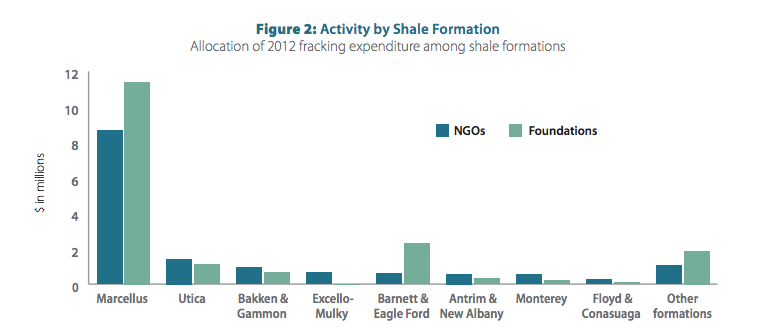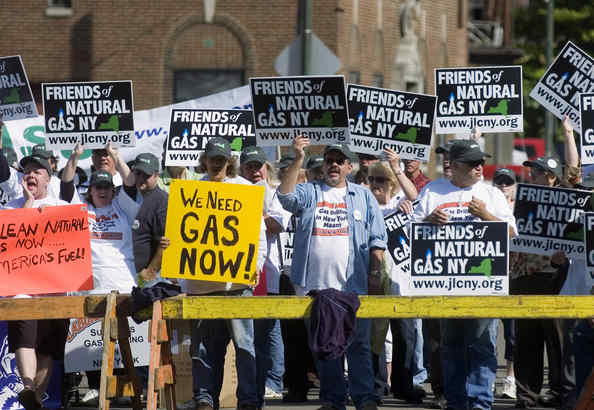Non-governmental organizations, or NGOs, are non-profit, voluntary, citizen-created groups designed to “perform a variety of service and humanitarian functions, bring citizen concerns to governments, advocate and monitor policies, and encourage political participation through provision of information” (Definition of NGOs). Recently, environmental NGOs have begun to publicly take stances on fracking, almost unanimously in opposition to it. On April 24, 2012, Greenpeace produced a report in conjunction with Food & Water Europe, Friends of the Earth Europe, and the Health & Environment Alliance. This position statement details the various negative environmental impacts of fracking, including (but not limited to) water pollution, water usage, climate change, soil pollution, air pollution, and seismic activity. Additionally, the statement calls for the cessation of all ongoing activities, as well as proposed activities.
It is difficult to gauge the exact impact of NGOs, but it is clear that they are growing in power. A 2013 report surveyed a total of 81 NGOs, who reported spending $17.4 million in 2012, and 33 foundations, who reported spending $18.3 million. Philanthropic support is crucial, as is a volunteer labor force. Environmental NGOs and advocacy foundations have been particularly active in the Marcellus Shale region, with nearly $20 million in combined expenditures out of the total $35.5 million.

Greenpeace: Position Statement on Shale Gas, Shale Oil, Coal Bed Methane, and ‘Fracking’




